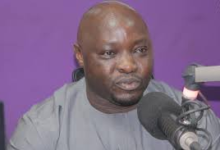
The World Bank yesterday approved a $300 million facility to support Ghana to help strengthen the country’s macroeconomic stability and promote economic growth.
The facility under the Development Policy Operation for Ghana, a concessional loan to support the country’s budget execution, is a contribution by the World Bank’s International Development Association to help Ghana’s economic recovery and enhance inclusive growth.
This bring to $900 million, the amount International Monetary Fund (IMF) and the World Bank approve for Ghana in less than a week, to support the country’s economic recovery and growth.
A statement posted on the website of the World Bank on Tuesday, said the approval of this financing package followed last week’s agreement in principle by the Official Creditors’ Committee under the G20 Common Framework on the key parameters of the proposed debt restructuring for Ghana.
It said the agreement, which was consistent with the Joint World Bank-International Monetary Fund Debt Sustainability Framework, represented a critical milestone toward restoring debt sustainability.
Finance Minister, Ken Ofori-Atta last Friday, during a joint press conference by the Bank of Ghana, Ministry of Finance and International Monetary Fund (IMF), following the approval of the Executive Board of the IMF of the $600 million second tranche under Ghana’s 36-month Extended Credit Facility with the Fund, said the approval of the $600 million by the IMF was also attracting another $300 million from the World Bank for budget support and another $250 million to help establish the Ghana Financial Stability Fund.
The World Bank said the DPO was the first in a series of three operations of $300 million each and part of a broad World Bank engagement for crisis response and resilience in Ghana.
“Its objectives are to restore fiscal sustainability, support financial sector stability and private sector development, improve energy sector financial discipline, and strengthen social and climate resilience,” the World Bank said.
The statement said specific reforms supported by this financing series included strengthening domestic revenue mobilisation, controlling expenditures, safeguarding financial sector stability, removing barriers to private investment, setting the energy sector on a sounder financial and operational footing, strengthening the country’s social protection system, and mainstreaming climate adaptation and mitigation across policies.
Commenting on the approval of the $300 million support to Ghana by the Executive Board of the World Bank, Ousmane Diagana, World Bank Vice President for Western and Central Africa, said “restoring fiscal and debt sustainability, bolstering growth prospects, curbing inflation, and protecting the most vulnerable – measures supported by this financing – are urgent priorities for Ghana. They are also essential steps to allow the country to attract more foreign investment, revitalise its domestic private sector, build resilience against climate change, and improve the quality of life of its people.”
A highly placed source at the Ministry of Finance yesterday, confirmed to the Ghanaian Times that the World Bank had approved the DPO.
According to the source, Cabinet needed to approve the $300 million DPO which would then go to Parliament for approval before the money could be disbursed.
Mr Ofori-Atta in an exclusive interview with the Ghanaian Times yesterday, via phone said “what we have achieved as a nation, since the start of the year 2024 is very significant. With the approval of the $300 million World Bank DPO and the disbursement of $600 million from the IMF, there is great momentum in our quest to engender macro-economic stability and growth.
We did have some challenging years of being buffeted by external headwinds, however, as a people, we took the difficult decisions, and we have indeed turned the corner.”
BY KINGSLEY ASARE







